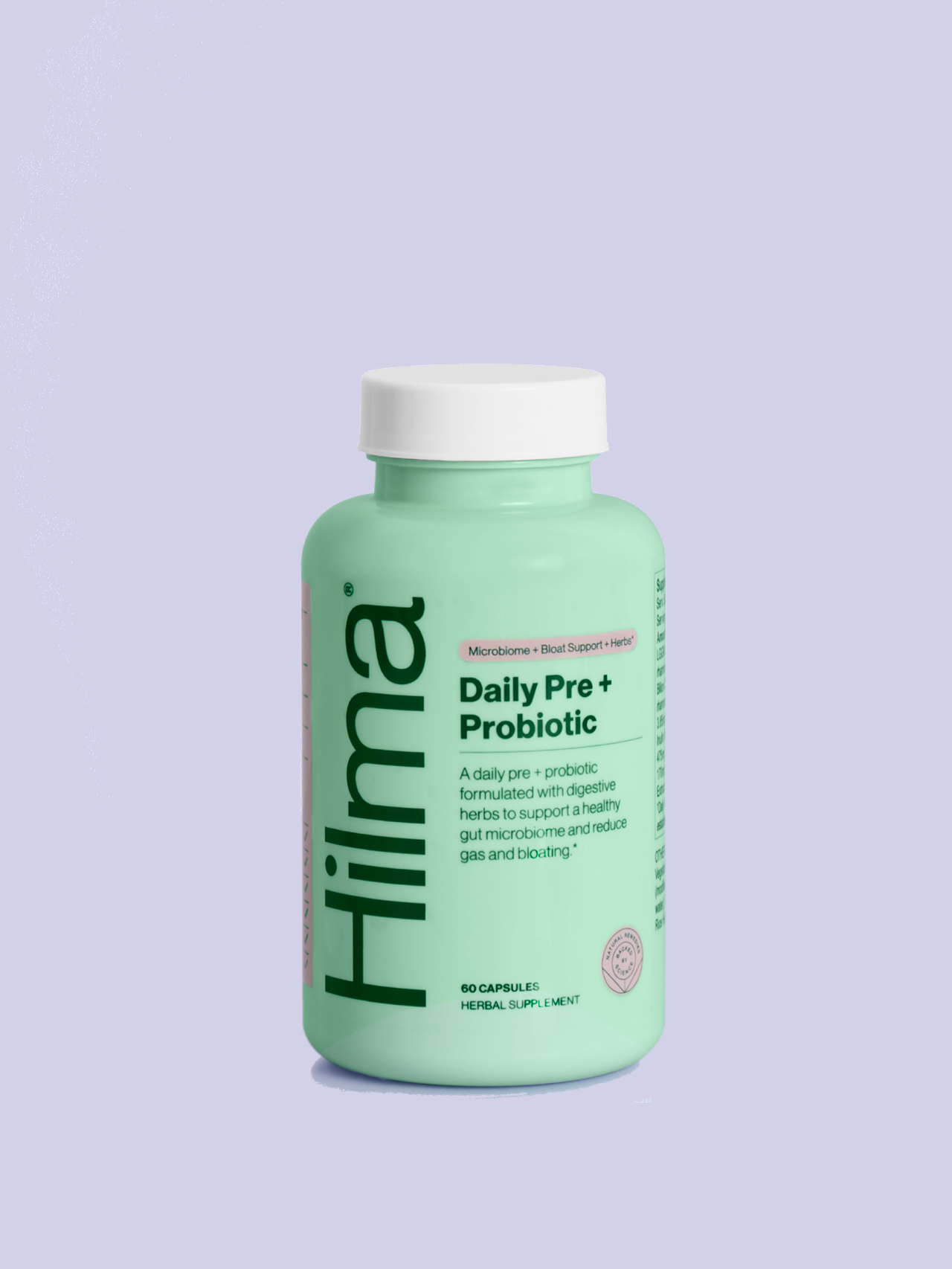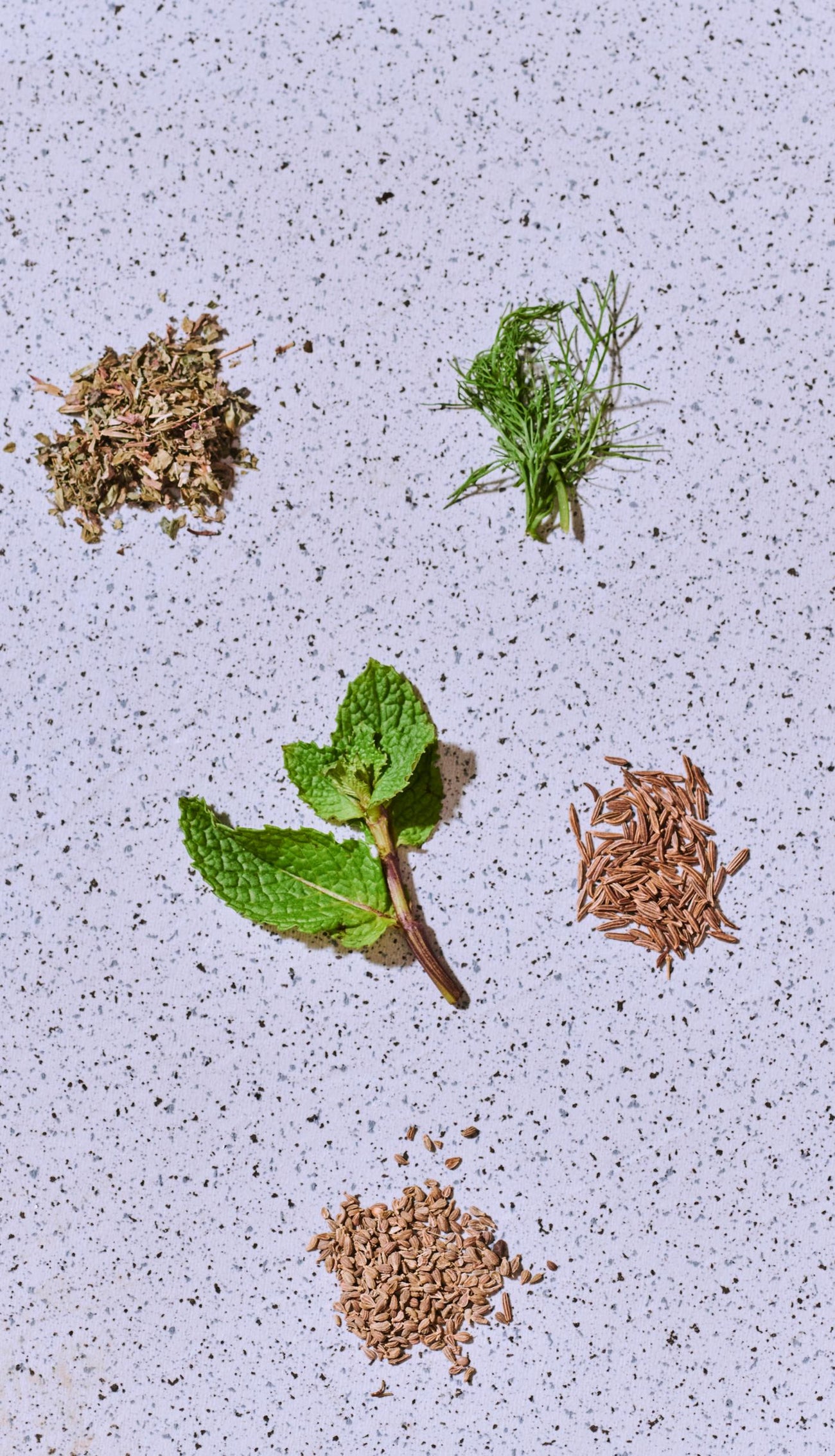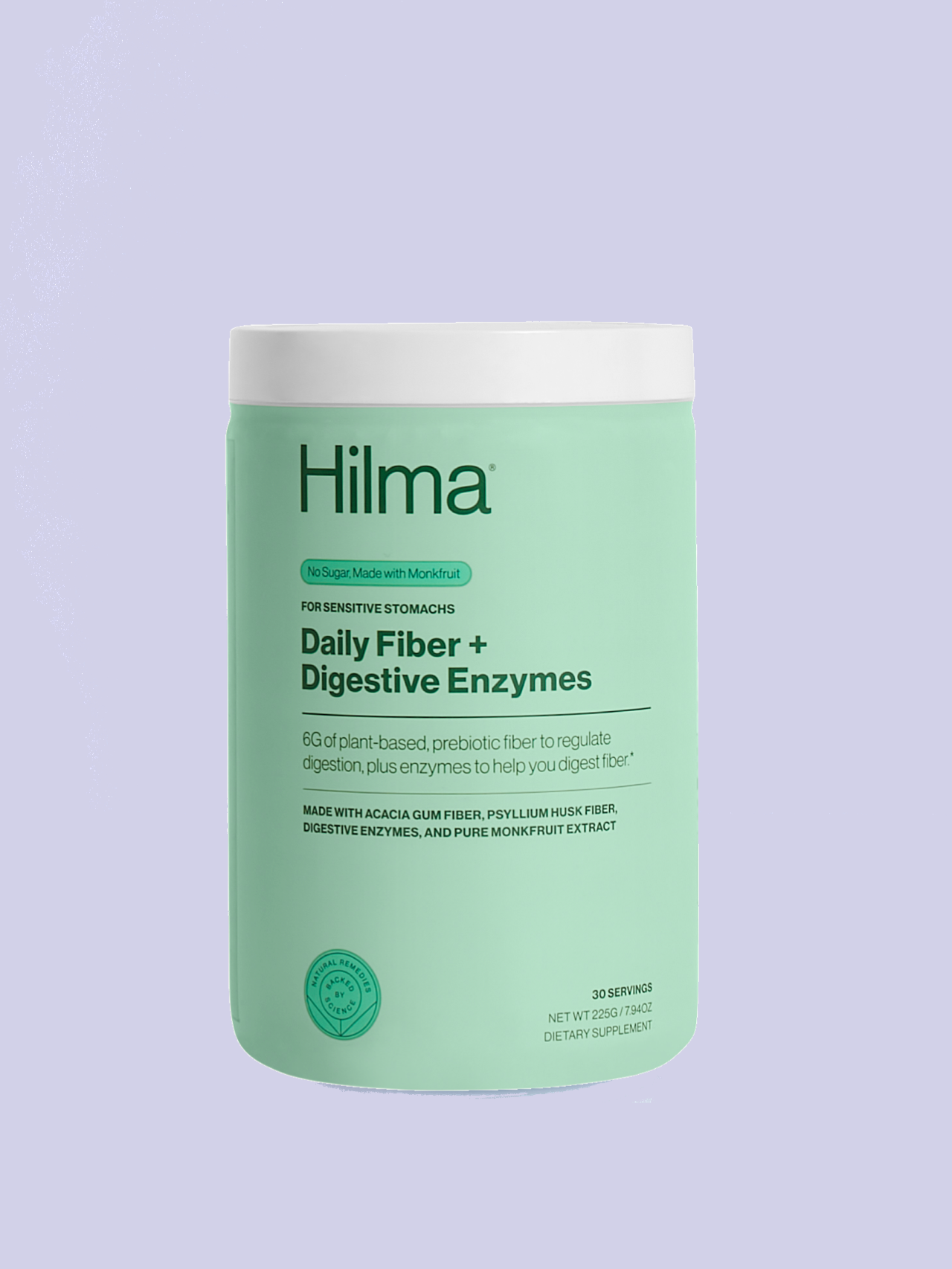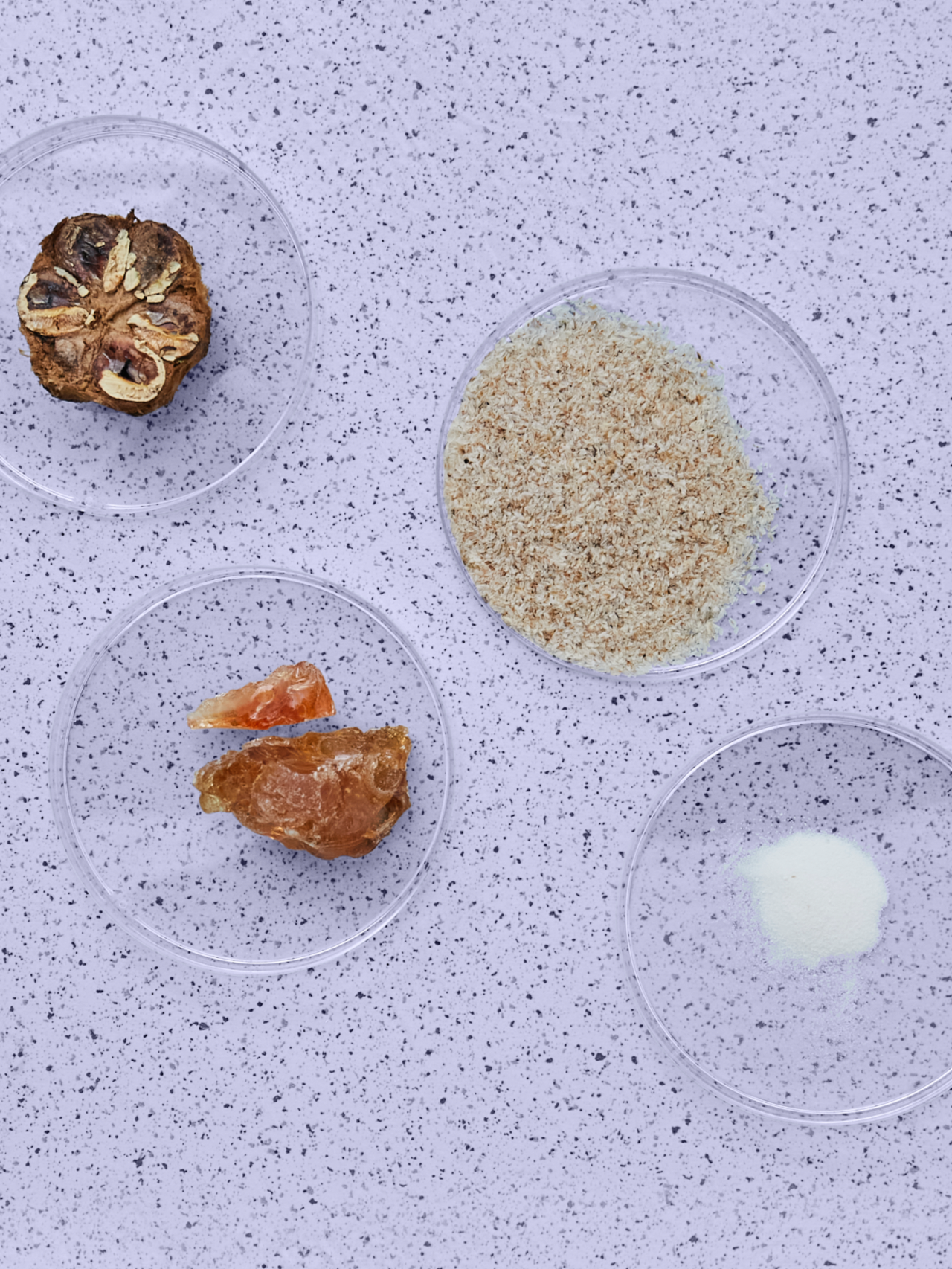
Growing research is highlighting specific bacteria strains beneficial to female health. The female body’s gut microbiome can differ from a male body’s gut microbiome because the microbiome regulates many steroid hormone levels, including estrogen. And female bodies tend to produce and circulate more estrogen than male bodies.
The therapeutic potential of probiotics in female gut health is immense! The gut microbiota can vary based on pathologies. For example, individuals with polycystic ovarian syndrome (PCOS) are found to have less diverse gut microbiomes than controls. The administration of a supplement with strains the women with PCOS had low abundance in, including Lactobacillus reuteri and Lactobacillus acidophilus, reduced PCOS-symptoms after just 12 weeks! (1) Here are four ways that pre + probiotics can benefit women's health.
1. Gut Health
When looking at the gut microbiome for gut health specifically, bacteria play a significant role in how you may feel. Just think about how many gut microbiota cells there are - the human body contains 10 trillion cells while the gut microbiota contains 100 trillion cells! (2) Healthy intestinal microbiota act as a line of resistance to colonization by pathogenic bacteria, such as Clostridium difficile. C. diff is the mischievous strain often responsible for antibiotic associated diarrhea. While life saving, antibiotics sometimes kill off some good bacteria since they are not bacteria specific, and this change sometimes leads to overgrowth of disruptive bacteria. Through restoring the natural balance of bacteria in the GI tract, probiotic supplementation has been shown to reduce antibiotic associated diarrhea when compared with placebo. (2)
Prebiotics additionally play a vital role in gut health. Fiber is recommended for regular bowel movements stems from not only the physical bulk that some fibers can provide, but the role as food for bacteria. A clinical trial on healthy individuals with constipation found that consumption of inulin, the fiber in chicory root, increased stool frequency significantly compared to quality of life. (3) Not only did the individuals poop more, but their stools were softer and they rated greater quality in life! (3)
2. Vaginal Health
Like most parts of the body, the vagina holds its own system of bacteria. Lactobacillus is the most abundant microorganism in the vagina, heavily related to the vaginal barrier. (4) This species helps protect pathogens from entering the vagina, such as Bacterial Vaginosis (BV). Those who have experienced BV are aware of how difficult the infection can be to treat. BV is caused by Gardnerella vaginalis. The infection occurs when this bacteria overgrows in the vagina. For some, the bacteria is able to grow because of a shift in pH around a menstrual bleed and for others, it may be due to sex with a new partner.
Due to the change in balance, many practitioners recommend a supplement with Lactobacillus rhamnosus and Lactobacillus reuteri to help improve the bacteria balance. A meta-analysis in 2022, found that women who received a probiotic supplement, typically with Lactobacillus rhamnosus, in addition to traditional metronidazole (an antifungal), had lower rates of BV relapse compared to those who received a placebo alongside metronidazole. (5)
3. Hormonal Health
Lactobacillus rhamnosus and reuteri are two strains that are found to improve the intestinal ecosystem, allowing for efficient removal of estrogens. Have you ever heard the phrase “estrogen dominance”? Estrogen, a dominant sex hormone in female bodies, is regularly recycled and eliminated in the body. When levels of the hormone build-up from insufficient elimination, symptoms and conditions emerge from painful cramps to endometriosis. A study in 2019 found women with endometriosis who supplemented with Lactobacillus rhamnosus and Lactobacillus reuteri, ranked their endometriosis pain symptoms lower than similar women who took a placebo instead. (6)
4. Cognitive Health
The gut is not an isolated system. Through the gut-brain axis, nerves communicate back and forth. Gut bacteria break down food particles that release compounds, called short chain fatty acids (SCFAs). These compounds are sensed by the vagus nerve, the nerve linking the gut and brain. Researchers have found SCFAs in cerebrospinal fluid and concentrations of SCFAs have been linked to alterations in mood, behavior, and cognitive function. (7) Research in 2021 found that older adults who received a probiotic for 12 weeks showed greater improvement on a mental flexibility test than those who received placebo. (8) Additionally, researchers have improved SCFA production alone through chicory root, a prebiotic supplement. (9)
Sources:
-
Microbiota in female health conditions: https://pubmed.ncbi.nlm.nih.gov/36421397/
-
Probiotics in gut health: https://www.ncbi.nlm.nih.gov/pmc/articles/PMC4878258/
-
Chicory insulin on bowel function in constipation: https://pubmed.ncbi.nlm.nih.gov/27492975/
-
Probiotics in vaginal health: https://www.ncbi.nlm.nih.gov/pmc/articles/PMC9366906/
-
Probiotics for BV relapse: https://www.ncbi.nlm.nih.gov/pmc/articles/PMC9530327/
-
Probiotics for endometriosis: https://pubmed.ncbi.nlm.nih.gov/31310070/
-
SCFas and cognitive function: https://www.frontiersin.org/articles/10.3389/fnins.2023.1197759/full#:~:text=SCFAs%20have%20been%20found%20in,in%20O'Riordan%20et%20al
-
Probiotic supplementation and cognitive function: https://pubmed.ncbi.nlm.nih.gov/32300799/
-
Prebiotic supplementation for SCFAs: https://www.ncbi.nlm.nih.gov/pmc/articles/PMC6355990/
This information is for educational purposes only and should not be taken as medical advice. Please consult a physician before treating any disorder.




